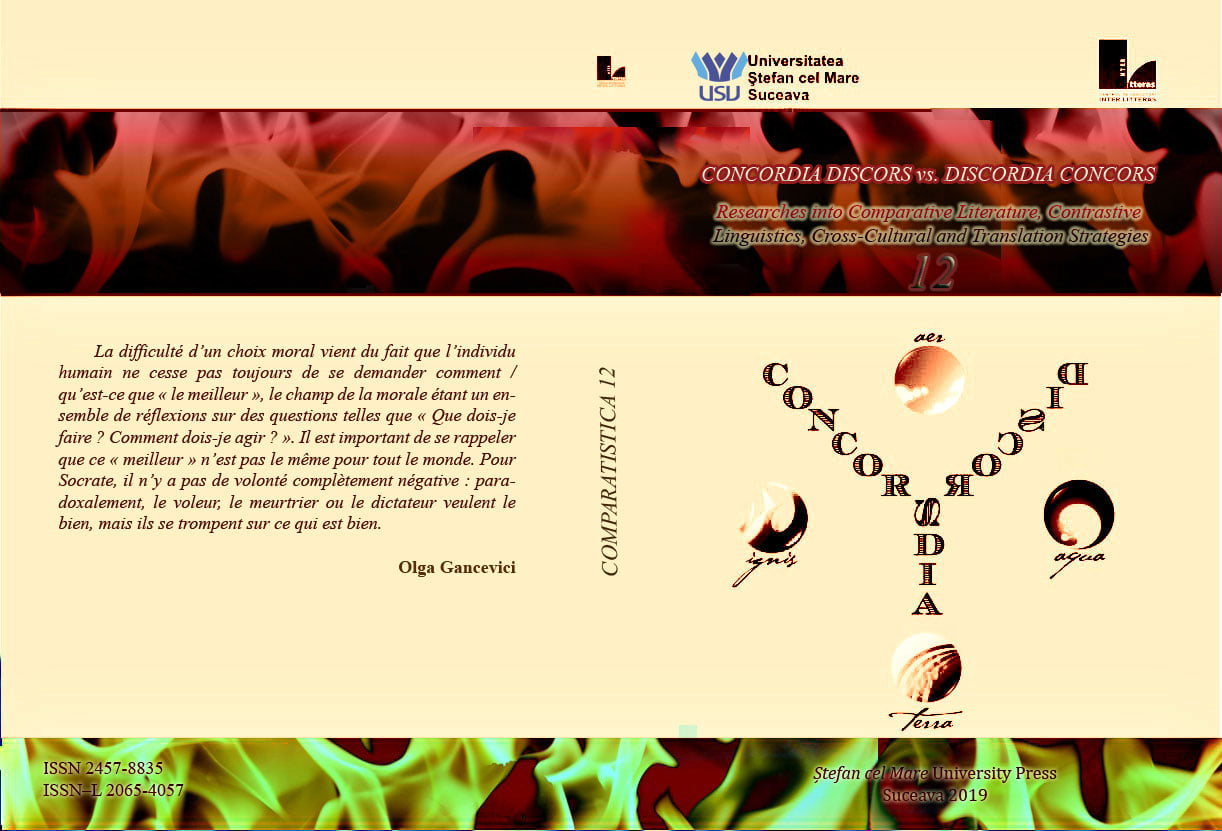The Id of Idiosyncratic Idioms in Individual Romance and Germanic Languages vs the Superego of Universal Languaculture
The Id of Idiosyncratic Idioms in Individual Romance and Germanic Languages vs the Superego of Universal Languaculture
Author(s): Gina MăciucăSubject(s): Language and Literature Studies, Theoretical Linguistics, Studies of Literature, Comparative Linguistics, Theory of Literature
Published by: UNIVERSITATEA »ȘTEFAN CEL MARE« SUCEAVA
Keywords: idiom; ear; sensory/cognitive perception; languaculture; contrastive phraseology; Romance vs Germanic;
Summary/Abstract: Inspired by the semantically equivalent series E talk one’s head/armoff – G sich ein Loch in den Bauch [= belly] reden – S hablar por los codos [=elbows] – R a i se duce gura [=mouth] la urechi [=ears; peripheralconstituent] – I fare una testa [= head] di qualcuno cosi, the approach at handis intended to complement the prevailingly language-based one and take theanalysis to the more complex, languacultural level, with the aim of bringingidiosyncratic patterns of forma mentis in individual languacultures to bear onsemantic selection of core constituents in interlingually synonymous idioms,and, while allowing for such factors as sheer frequency, contextual pragmaticclues, salient cultural practices or perceived gaps, also attempt to explore andaccount for similarities and contrasts both intra-languaculturally (i.e. withinlanguage families) and inter-languaculturally (i.e. across language families).The major focus of the present contribution – which merely broaches the topicat issue in this first research phase – is on ear and its interlingual synonyms asfeatured by idioms of English, German, Italian, Romanian and Spanishextraction.
- Issue Year: 2019
- Issue No: 12
- Page Range: 127-140
- Page Count: 14
- Language: English

